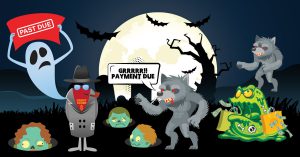Finances 101: 5 Ways to Avoid Credit Card Debt
Create a Workable Budget

The first step in managing your finances is knowing how much money you have coming in and how much is going out. A workable budget is about as close to a monetary crystal ball as you’re likely to find. Your budget shows you how much money you have available, when you expect to have more, what bills have to be paid and when they are due; it also tells you how much money you have left over at the end of the month. A budget allows you to plan your purchases, rather than reaching for the plastic whenever you feel the impulse.
Pay Your Bill in Full
Using your credit card to pay for budgeted items can be a safe and convenient way of handling your money. You don’t have to worry about losing cash, which can’t be replaced, and you don’t have the hassle of writing a check. “Make sure you can pay off any purchases you make by the end of the month,” advises Jana Castanon, community outreach coordinator for the credit counseling company Apprisen. “If you must carry a balance, never extend it out for more than three months.” The kicker is knowing when your grace period ends. As long as you pay your credit card bill in full before then, you don’t incur any debt. If you miss that window, get ready to pay extra in the form of interest.
Employ a Cool-Down Strategy
Some people freeze their credit card in a block of ice, so they have to wait for the ice to melt before using the card. The idea is, if you have to wait for a few hours before you can make the purchase, the immediate lust has time to pass and you can more calmly evaluate whether the item is really worth putting on your card. While freezing your card might be a bit extreme, you need some kind of cool-down trigger. “Know your money personality,” Jana recommends. “Some people are just more prone to impulse buying than others. If that’s you, leave your credit card in a safe, secure place when you go shopping so you’re not tempted to use it.”
Charge Only Durable Goods
A good rule of thumb is to never use your credit card to buy an item that won’t exist by the time the bill arrives. Use cash or a debit card to pay for eating out, movie tickets and gasoline. Save your credit card for emergencies, like a major car repair. If you use your card for a major expense that you won’t be able to pay off by the end of the grace period, include the repayment expense in your budget. The sooner you pay it off, the less it will cost you in interest. “If you buy an item on impulse, leave it out where you can see it,” Jana says. “If you decide you don’t need it, give yourself permission to return it. If you put the item away, it will be out of sight, out of mind.”
Read the Fine Print
“Always look at the terms and conditions of any credit card offer,” Jana says. “Don’t assume that the introductory interest rate is permanent. The offer that you get in the mail might not be the actual terms of credit. In most cases those offers are based on a best-case scenario. If you don’t have perfect credit, your terms could be considerably different.”
Quicken has made the material on this blog available for informational purposes only. Use of this website constitutes agreement to our Terms of Use and Privacy Policy. Quicken does not offer advisory or brokerage services, does not recommend the purchase or sale of any particular securities or other investments, and does not offer tax advice. For any such advice, please consult a professional.


